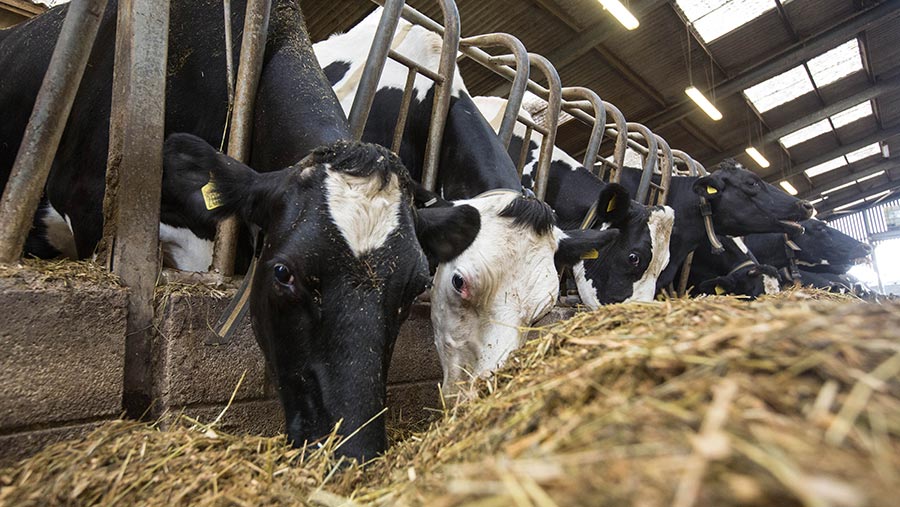Opinion: Change in farming should be embraced, not feared
 © Tim Scrivener
© Tim Scrivener In the year that we all want to forget, another milestone has arrived here at the farm – the dairy herd has spent its first full day in winter housing.
It’s an odd situation. The cattle just aren’t performing as well as an autumn-calving unit should, so decisions had to be made. It’s vital the cows continue to perform at this peak period.
See also: Farmers are undervalued in the free market, says Colin Ferguson
Ultimately, good herd management now will ensure performance through the long winter nights ahead. But the start of this indoor routine is just as welcome as the breaking of it at the turn of spring. As they say, a change is as good as a rest.
I am in no doubt our industry will and does continue to adapt to change – Covid-19, Brexit and the climate emergency will secure that path. But change also brings with it challenges and opportunities that we are yet to even see on the horizon.
Indoor v outdoor, min till v the plough, organic v conventional – we can all learn so much from each other. But the most important lesson we should all take is that working together, embracing our differences and moving forward united will allow us to be greater than the sum of our parts.
Much like the managing of the dairy herd changing from year to year to suit weather patterns, no two farms are the same. Methods that work for some won’t for others and, almost as important, not all types of farming suit all people. This is why UK agriculture is so varied and diverse, and all the richer for it.
So, while we navigate the next months, years and decades, we must remember that farming isn’t, nor should it be, prescriptive.
Grandstanding around farming techniques needs to be left in 2020 and, while I fully embrace and agree with debate, I am not convinced those who enjoy the “soapbox” have their eyes wide open when there is an alternative view.
Rubbernecking to see what is happening over the fence while not paying attention to your own direction, and the fear of doing things differently need to be diminished.
I have little time for individuals and organisations that take cheap shots at another business or types of farming to demonstrate that they operate in a more sustainable or ethical way.
Indoor v outdoor, min till v the plough, organic v conventional – we can all learn so much from each other. But the most important lesson we should all take is that working together, embracing our differences and moving forward united will allow us to be greater than the sum of our parts.
I truly believe that excellence stands on its own two feet, and we should celebrate those who really are breaking boundaries, as well as acknowledge the many people who don’t wish to tell the world about their successes, but are quietly driving towards their own goals.
Covid-19 has overshadowed the difficult decisions that will be required after Brexit, but anyone who is still living in hope for a different outcome needs to face reality, and quickly.
Next year will be a difficult one that will see big changes for farming families and organisations. But January won’t be the start of the journey and change isn’t coming – it’s already here.
We’re all at different stages of the adoption curve. The one thing we must do is remove our heads from the sand, listen to advice, adapt and take advantage of the opportunity it presents. As they say: “Change is the only constant in life”.
